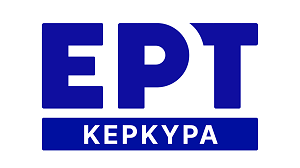This research paper examines the coexistence of postmodern parody and pastiche with the science fiction genre in the Greek comedy The Attack of the Giant Moussaka (1999) directed by Panos H. Koutras. The film is a science fiction parody of the classic monster movies of the 1950s, that explores also themes of cultural identity, genre and sexuality and comments on Greek reality in an ironic way.
In The Attack of the Giant Moussaka, the city of Athens is terrorized by a Giant piece of moussaka, a result of an alien interference with a normal piece of this tourist favorite Greek food.
While science fiction is one of the most popular genres in world cinema, it does not hold such an essential position in Greek filmography. Specifically, science fiction is a rather underrepresented genre in Greek cinema. Even if the movie under examination does approach science fiction in a parodic way, it is still one of a few, if not the only Greek film that touches themes like aliens, UFOs and global monstrous threats. For that reason, I find it crucial for the film to be examined in that context and to explore the ways in which the science fiction genre is used to highlight issues of cultural identity. I will examine the ways in which the science fiction parody takes place and what tropes are used to achieve this ironic result. My method will involve the detection of the characteristics that constitute the postmodern parody and how they intertwine with the science fiction genre in the particular Greek context. I will also pay attention to the fundamental role the science fiction genre and the postmodern techniques and aesthetics play to the criticism and commentary that the film provides, concerning Greek society and its perception and understanding of its culture.
It is also important to note that in the post-covid era, the concept of the end of the world in art and literature has obtained a slightly different response since the audience world-wide is burdened with the traumatic lived experience of the state and media management of the pandemic. For that reason, I find it interesting to research the imaginary management of a world-ending event by the Greek state and media, as it is presented in Koutras film.
Selective Bibliography
Booker, M. K. (2006). Alternate Americas: Science Fiction Film an American Culture, Praeger, Westport.
Bower, A. (ed) (2004). Reel Food: Essays on Food and Film, Routledge, New York.
Hutcheon, L. (2002). The politics of Postmodernism. Routledge, London.
Istvan Csicsery-Ronay, Jr. (2002). On the Grotesque in Science Fiction. Science Fiction Studies, 29(1), 71–99. http://www.jstor.org/stable/4241045
Jameson, F. (1991) Postmodernism, Or, The Cultural Logic of Late Capitalism, Duke University Press, Durham.
Jameson, F. (1998) The Cultural Turn: Selected Writings on the Postmodern 1983-1998, Verso, New York.
Ohlin, P. (1991). Science-Fiction Film Criticism and the Debris of Postmodernism [Review of Alien Zone: Cultural Theory and Contemporary Science Fiction Cinema; Close Encounters: Film, Feminism, and Science Fiction, by A. Kuhn, C. Penley, E. Lyon, L. Spigel, & J. Bergstrom]. Science Fiction Studies, 18(3), 411–419. http://www.jstor.org/stable/4240095
Papadimitriou, L. (2002) Locating Contemporary Greek Film Cultures: Past, Present, Future and the Crisis, Filmicon: Journal of Greek Film Studies, https://filmiconjournal.com/journal/article/2014/2/2
Papanikolaou, D. (2005) Greece as a postmodern example: Boundary 2 and its special issue on Greece, Κάμπος: Cambridge Papers in Modern Greek, no. 13, pp. 127-145, https://www.modlangs.ox.ac.uk/sites/www.modlangs.ox.ac.uk/files/boundary2kambos.pdf
Telotte, J. P. (2001). Science Fiction Film, Cambridge University Press, Cambridge.
Walter, M. (2019). Landscapes of Loss: The Semantics of Empty Spaces in Contemporary
Post-Apocalyptic Fiction. In C. J. Campbell, A. Giovine, & J. Keating (Eds.), Empty Spaces: Perspectives on Emptiness in Modern History (pp. 133–150). University of London Press. http://www.jstor.org/stable/j.ctvp2n2r8.13
Back














